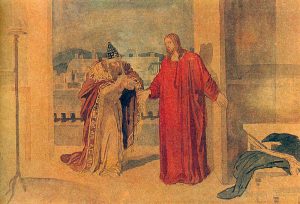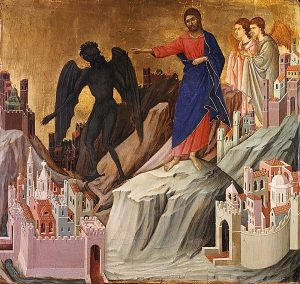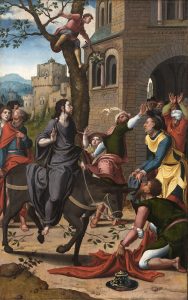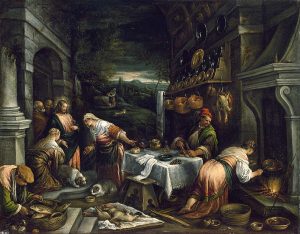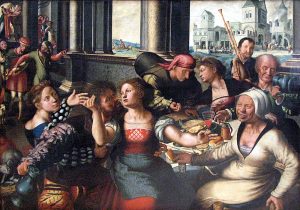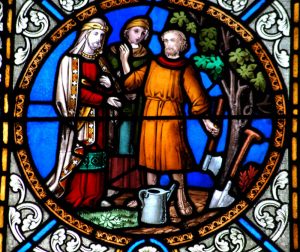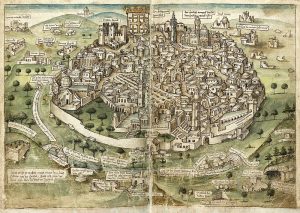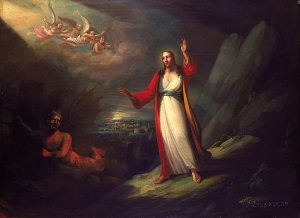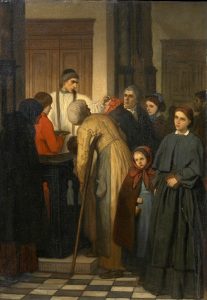Illuminations on the Lectionary readings for March 12, 2023 (Lent 3A)
First Reading: Exodus 17:1-7
This week’s readings focus our thoughts on water and thirst … and a bit of gratitude. We may thirst for righteousness, mercy and justice, but when we are thirsty and need water, this simple human need takes precedence.

Christ and the Samaritan Woman at the Well (1796), oil painting on canvas by Angelica Kauffmann (1741-1807). Neue Pinakothek, Munich, Germany. (Click image to enlarge)
Sunday’s readings take us from the thirsty Israelites in the desert to Jesus stopping for water and rest in a Samaritan town. In our first reading from Exodus, the Israelites are no longer hungry – in previous verses, they have just received miraculous manna – but they still have no water. Their constant thirst makes them so angry that they wish they were back in slavery in Egypt, where at least their basic needs of life were met. Moses is angry and outdone with them, but God provides a miracle to quench their thirst.
Psalm: Psalm 95
Psalm 95, which we also know as the Venite in Morning Prayer, begins with a surprisingly joyous tone for the penitential time of Lent. But its sounds of praise for God change key abruptly in Verse 8, when the Psalmist reminds us of the story we heard in the Exodus reading: The thirsty, angry people turned their hearts away from God and put God to the test. The Psalmist imagines that these actions drove God to “loathe” these ungrateful people and leave them lost 40 years in the desert.
Second Reading: Romans 5:1-11
The infant church in Rome has known suffering. Some of its members were forced into exile, and the entire congregation was at risk for its faith. But their suffering gives them the opportunity to learn endurance and build their character, Paul reminds them, by means of their hope in the love that God pours into their hearts through the Spirit. Even though the people are sinners, we hear, they are justified through faith and saved through Jesus’s death on the cross.
Gospel: John 4:5-42
Jesus, like the people in the desert, was tired and thirsty after a long journey. Returning from Jerusalem to Galilee (a journey that we hear about only in John’s Gospel), he decided to pass through the country of the Samaritans even though they were not on good terms with their Jewish neighbors. Jesus struck up a conversation with a Samaritan woman, asking her for a drink. These actions surprised her, as Jewish men of the era weren’t likely to engage with Samaritans, much less Samaritan women. Then his conversation surprised her even more, as he promised her the unending “living water” of God’s spirit, foretold an end to the differences between their people, and declared himself the Messiah.

